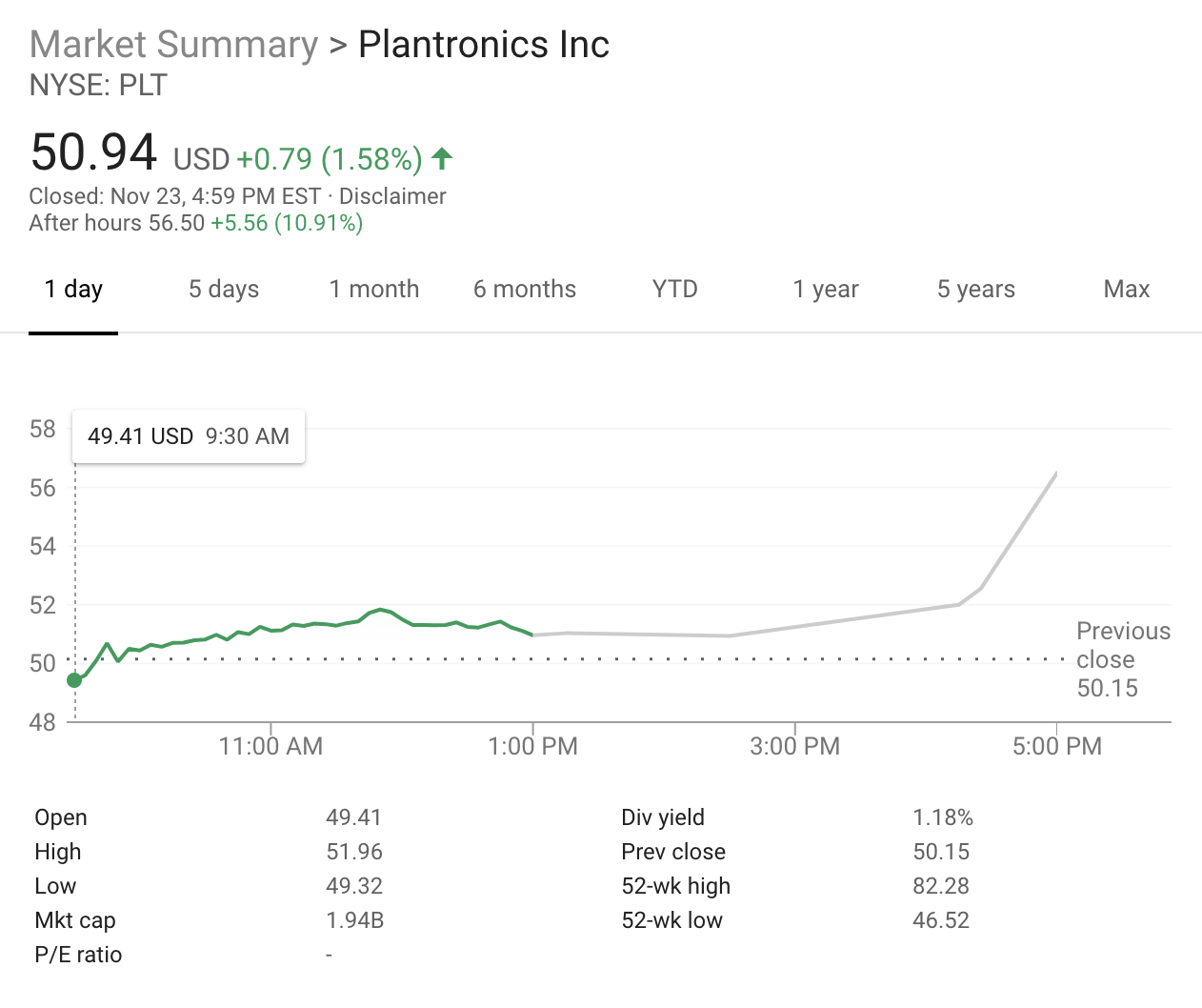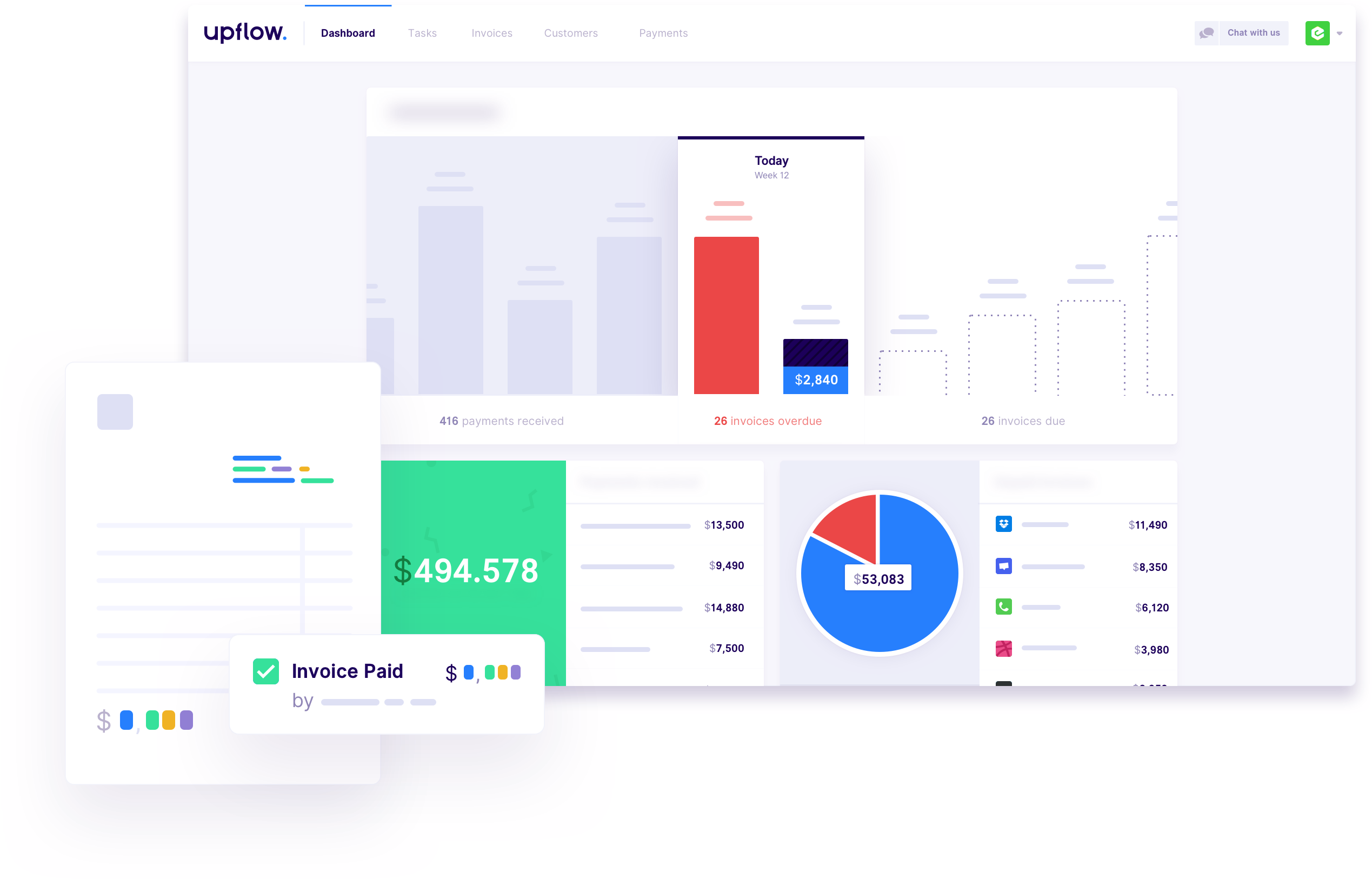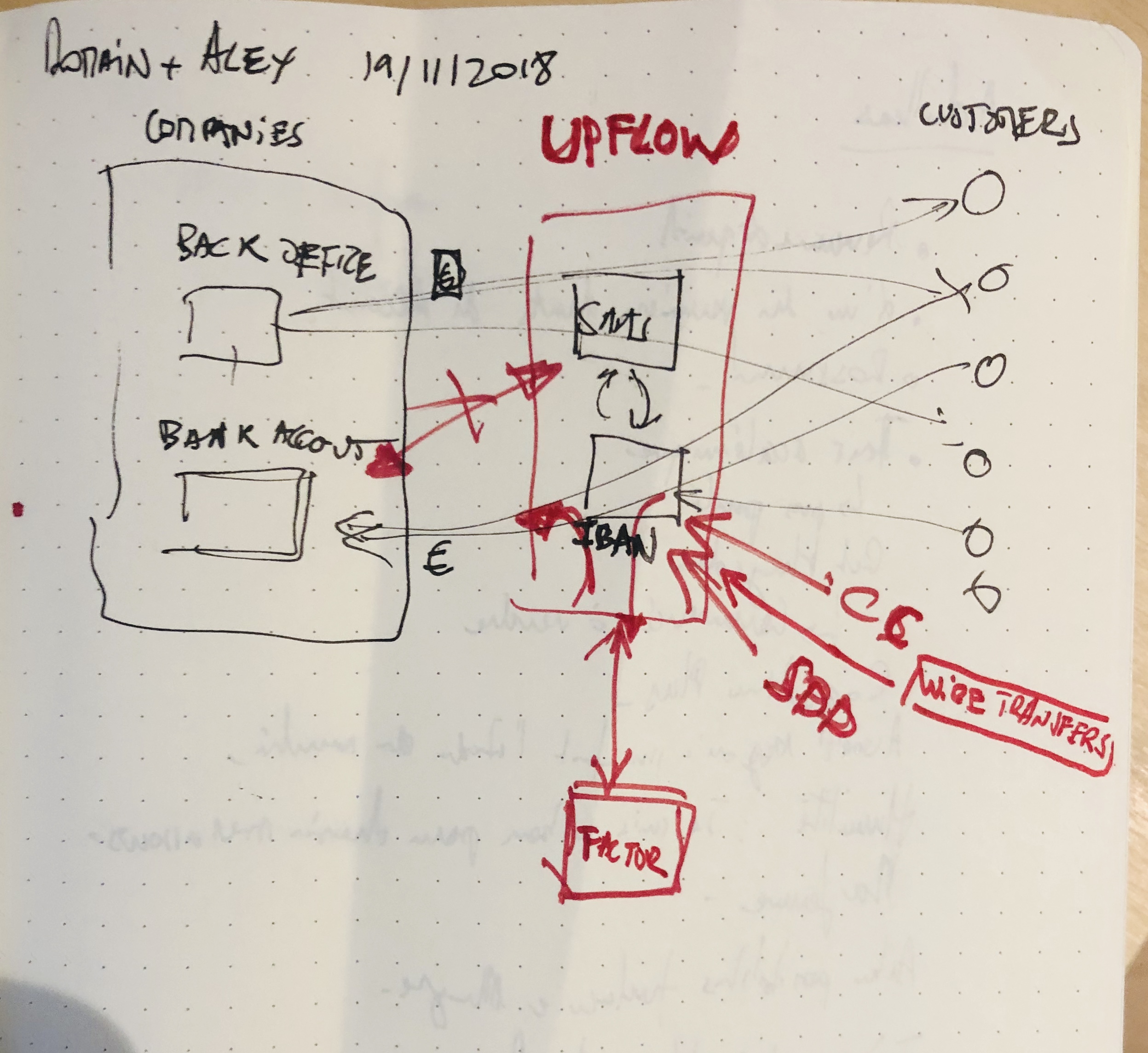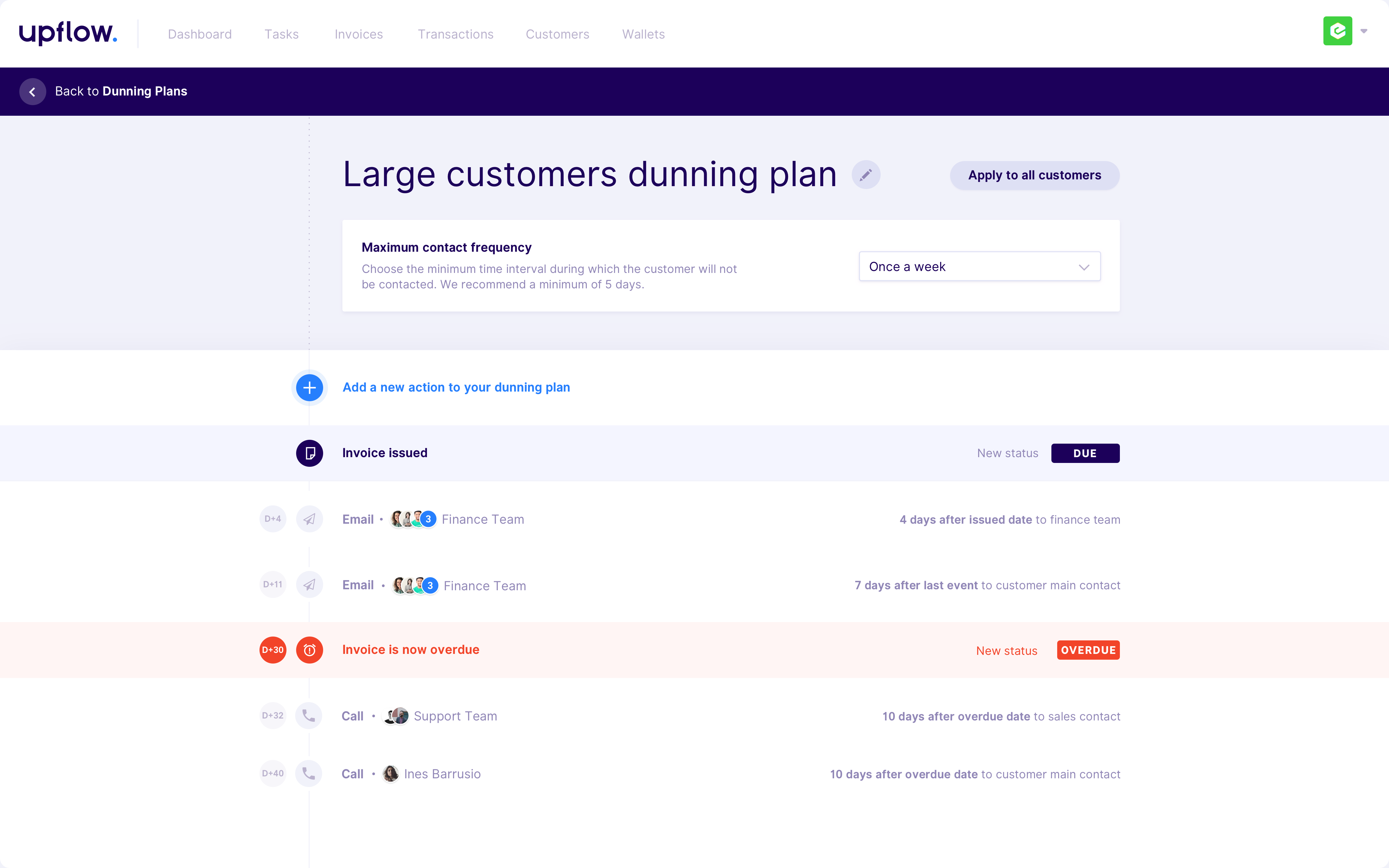
What Was The First Commercial Application of Microprocessors? |
|
Think you know the answer? |
|
from How-To Geek https://ift.tt/2P1JaOS

What Was The First Commercial Application of Microprocessors? |
|
Think you know the answer? |
|
Caroline O'Donovan / BuzzFeed News:
Tech companies seeking real estate are asking local officials to sign NDAs, keeping economic and environmental risks hidden from the public and some lawmakers — Less than a week before Amazon officially announced it had chosen New York City and Crystal City, Virginia …
Hannah Murphy / Financial Times:
Profile of Mike Novogratz, whose merchant bank Galaxy Digital has raised $242M on Toronto Venture Exchange in August and is a major investor in crypto startups — Mike Novogratz keeps crossing his fingers that this year's bitcoin crash, which has seen the cryptocurrency lose three-quarters …
As we hang out with family and friends this holiday season, it’s interesting to look back on the Bitcoin mania that we endured one Thanksgiving ago. Aunts and uncles asking about internet money as you passed the mashed potatoes while trying to explain the concept of decentralization in a way that made it seem like you knew your stuff.
Well, as we near a year since many of the top tokens hit their all-time-highs, we’ve seen the prices come crashing down as more manageable expectations of the crypto market have seemed to prevail. You probably didn’t have quite as many relatives picking your brain this year for crypto investment tips.
Today, we saw another hit to the market. All but 8 of the top 100 cryptocurrency tokens are down for the 24-hour period with most losses averaging around 13 or 14 percent.

via coinmarketcap.com
Notably, Bitcoin has now fallen beneath the $4,000 threshold, a number it reached in August of last year as its trajectory pointed sharply upward. Ethereum is trading just over $111, while Litecoin has fallen below $30, far cries from their former glory.
The cryptocurrency space is a volatile one but the year-long downward trend has been consistent and unrelenting leaving many to wonder where and when some of these top tokens settle down.
Abby Ohlheiser / Washington Post:
How lip-syncing video app TikTok got to 6M+ users in the US, in part by relieving job stress for workers like firefighters, military, and nurses — Camille Gates's husband would stare at his phone for long stretches of time, laughing at amateur music videos on an app called TikTok.
Andrew Orlowski / The Register:
OpenSignal: average data speeds on mobile networks now outpace customer's Wi-Fi connection, on average, in 33 countries like Australia, France, Turkey, Lebanon — And that means smartphones will need to get smarter — Ofcom's top tech bod, Mansoor Hanif, recently gave the Wi-Fi industry a roasting …
Carole Cadwalladr / The Guardian:
UK parliament seizes documents, first obtained in a US civil case, allegedly shedding light on Facebook policies that led to the Cambridge Analytica scandal — Parliament has used its legal powers to seize internal Facebook documents in an extraordinary attempt to hold the US social media giant …
LinkedIn, the social network for the working world with close to 600 million users, has been called out a number of times for how it is able to suggest uncanny connections to you, when it’s not even clear how or why LinkedIn would know enough to make those suggestions in the first place.
Now, a run-in with a regulator in Europe illuminates how some of LinkedIn’s practices leading up to GDPR implementation in Europe were not only uncanny, but actually violated data protection rules, in LinkedIn’s case concerning some 18 million email addresses.
The details were revealed in a report published Friday by Ireland’s Data Protection Commissioner covering activities in the first six months of this calendar year. In a list of investigations that have been reported concerning Facebook, WhatsApp and the Yahoo data breach, the DPC revealed one investigation that had not been reported before. The DPC had conducted — and concluded — an investigation of Microsoft-owned LinkedIn, originally prompted by a complaint from a user in 2017, over LinkedIn’s practices regarding people who were not members of the social network.
In short: in a bid to get more people to sign up to the service, LinkedIn admitted that it was using people’s email addresses — some 18 million in all — in a way that was not transparent. LinkedIn has since ceased the practice as a result of the investigation.
There were two parts to the supervision, as the DPC describes it:
First, the DPC found that LinkedIn in the US had obtained emails for 18 million people who were not already members of the social network, and then used these in a hashed form for targeted advertisements on the Facebook platform, “with the absence of instruction from the data controller” — that is, LinkedIn Ireland — “as is required.”
Some backstory on this: LinkedIn, Facebook and others in the lead-up to GDPR coming into effect moved data processing that had been going through Ireland to the US.
The claim was that this was to “streamline” operations but critics have said that the moves could help to shield companies a bit more from any GDPR liability over how they use process data for non-EU users.
“The complaint was ultimately amicably resolved,” the DPC said, “with LinkedIn implementing a number of immediate actions to cease the processing of user data for the purposes that gave rise to the complaint.”
Second, the DPC then decided to conduct a further audit after it became “concerned with the wider systemic issues identified” in the initial investigation. There, it found that LinkedIn was also applying its social graph-building algorithms to build networks — to suggest professional networks for users, or “undertaking pre-computation,” as the DPC describes it.
The idea here was build up suggested networks of compatible professional connections to help users overcome the hurdle of having to build networks from scratch — that being one of the hurdles in social networks for some people.
“As a result of the findings of our audit, LinkedIn Corp was instructed by LinkedIn Ireland, as data controller of EU user data, to cease pre-compute processing and to delete all personal data associated with such processing prior to 25 May 2018,” the DPC writes. May 25 was the date that GDPR came into force.
LinkedIn has provided us with the following statement in relation to the whole investigation:
“We appreciate the DPC’s 2017 investigation of a complaint about an advertising campaign and fully cooperated,” said Denis Kelleher, Head of Privacy, EMEA, for LinkedIn. “Unfortunately the strong processes and procedures we have in place were not followed and for that we are sorry. We’ve taken appropriate action, and have improved the way we work to ensure that this will not happen again. During the audit, we also identified one further area where we could improve data privacy for non-members and we have voluntarily changed our practices as a result.”
(The ‘further area’ is the pre-computation.)
There are some takeaways from the incident:
Taking LinkedIn’s words at face value, it would seem that the company is trying to show that it is acting in good faith by going one step further than simply modifying what has been identified by the DPC, changing practices voluntarily before it gets called out.
Then again, LinkedIn would not be the first company to “ask for forgiveness, not permission,” when it comes to pushing the boundaries of what is considered permissible behavior.
If you are wondering why LinkedIn did not get fined in this process — which could be one lever for pushing a company to act right from the start, rather than only change practices after getting called out — that’s because until the implementation of GDPR at the end of May, the regulator had no power to enforce fines.
What we also don’t really know here — the DPC doesn’t really address it — is where LinkedIn obtained those 18 million email addresses, and any other related data, in the first place.
Other cases reviewed in the report, such as the inquiry into Facial Recognition usage by Facebook, and how WhatsApp and Facebook share user data between each other, are still ongoing. Others, such as the investigation Yahoo security breach that affected 500 million users, are now trickling down into the companies modifying their practices.
Lauren Thomas / CNBC:
Adobe: online sales rose to $6.2B on Black Friday, up 23% YoY, 33% of sales came from mobile devices; Cyber Monday sales are expected to reach $7.8B, up 18% YoY — - Online sales Black Friday jumped 23.6 percent from a year ago, according to a new report from Adobe Analytics.
Logitech, the manufacturer best known for its computing peripherals like keyboards and web cameras, is in talks to buy Plantronics, a maker of bluetooth-enabled headsets, according to Reuters.
The company is reportedly offering as much as $2.2 billion for Plantronics, according to the Reuters report, in what would be Logitech’s biggest acquisition to date.
Driving the consolidation push is an effort by both companies to cut costs as tariffs on imports from China could eat into their margins or force them to raise prices for consumers against a backdrop of increasing competition from a number of different vendors.
Reuters is reporting that the deal between the two companies could be finalized as early as next week.
We’ve reached out to both Logitech and Plantronics for comment and will update this story when we hear back.
News of the deal sent Plantronics shares up in after hours trading on the New York Stock Exchange.

Both Logitech and Plantronics have been active acquirers in the past year. Most recently, Logitech acquired the Blue Microphone business, which made popular podcasting microphones like the Yeti and Snowball.
Meanwhile Santa Cruz, Calif.-based Plantronics had bought Polycom in a $2 billion transaction earlier this year. The company, which started out making headsets for airline pilots and later sold equipment to the National Aeronautics and Space Administration, has struggled with low-cost competitors and new entrants into the headset market (like Apple).
Meet Upflow a French startup that wants to help you deal with your outstanding invoices — the company first started at eFounders. If you’re running a small business, chances are you’re either wasting a ton of time or a ton of money on accounts receivable.
Most companies currently manage invoices using Excel spreadsheets, outdated banking interfaces and unnecessary conversations. Every time somebody signs a deal, they generate an invoice and file it in a spreadsheet somewhere.
Some companies will pay a few days later. But let’s be honest. Too many companies wait 30 days, 40 days or even more before even thinking about paying past due invoices. You end up sending emails, calling your clients and wasting a ton of time just collecting money. You might even feel bad about asking for money even though you already signed a deal.
In France, most companies use bank transfers to pay invoices. But business banking APIs are not there yet. It means that you have to log in to a slow banking website every day to check if somebody paid you. You can then tick a box in an Excel spreadsheet.
If everything I described resonates with you, Upflow wants to manage your invoices for you. It doesn’t replace your bank account, it doesn’t generate invoices for you. It integrates seamlessly with your existing workflow.

After signing up, you can send invoices to your client and cc Upflow in your email thread. Upflow then uses optical character recognition and automatically detects relevant data — the customer name, the amount, the due date, etc.
You can view all your outstanding invoices in Upflow’s interface to see where you stand. The service gives you a list of actionable tasks to get your money. For instance, Upflow tells you if you have overdue payments and tells you to contact your client again.
You can set up different rules depending on your clients. For instance, if you have many small clients, you can automate some of those messages. But if you only work with a handful of clients, you want to make sure that somebody has manually reviewed each message before Upflow sends them.
By default, you write your emails in Upflow so that your other team members can see what happened. You can browse invoices by client to see if somebody has multiple unpaid invoices. Upflow lets you assign actions to a particular team member if they’re more familiar with this specific client.
But all of this is just one part of the product. Upflow also generates banking information with the help of Treezor. This way, you can put your Upflow banking information on your invoices.
When a customer pays you, Upflow automatically matches invoices with incoming payments. This feature alone lets you save a ton of time. The startup transfers money back to your company’s bank account every day.
Upflow co-founder and CEO Alexandre Louisy drew me the following chart when we met. It’s probably easier to understand after reading my explanations:

In other words, Upflow has created a brick that sits between your company’s back office and your customers. Eventually, you could imagine more services built on top of this brick as Upflow is learning many things on your company.
According to Louisy, small and medium companies really need this kind of product — and not necessarily tech companies. Those companies don’t have a lot of money on their bank accounts, don’t have a big staff and need to save as much time as possible.
Now let’s see if it’s easy to sell a software-as-a-service solution to a family business that has been around for decades.

Olivia Carville / Bloomberg:
Jeff Bezos' Day One Fund announces its first grants, worth $97.5M, awarded to 24 non-profits that provide emergency shelter and access to permanent housing — - First awards distributed from the $2 billion Day One Fund — Grant awards those who do ‘needle-moving work’ for families
Kara Swisher / New York Times:
Sheryl Sandberg deserves much blame for the bad decisions at Facebook but, with most criticism directed at her, Mark Zuckerberg largely escapes scrutiny — Perhaps it's only fair that, as women like Sheryl Sandberg rise to power, they pay the price for failure.